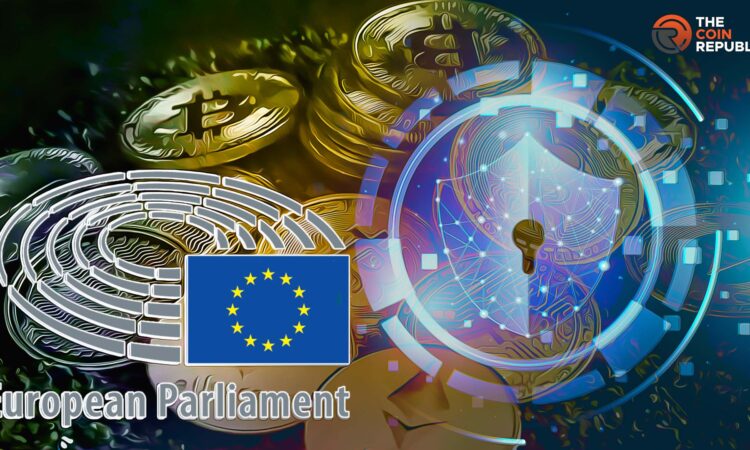
The European Union formally signed MiCA on May 31, 2023, making it a law, concurrently EU Commissioned study argues for treating crypto assets as securities by default. After signing the dotted line, the EU became the first significant jurisdiction on the planet to have a comprehensive regulatory framework for the crypto industry.
During the same time-lapse, the European Parliament commissioned a study that said that separate classification would create difficulties.
Treat Crypto as Securities by Default, European Parliament Study Says$SYS $htr $inj $srm $orai #AVAX $magic $PERL $inj $ocean $QLC $rose pic.twitter.com/VxInLPIyqz
— Crypto Market News (@cryptonewsvend) June 1, 2023
Treat Crypto Assets as Securities by Default – EU
Per the study revealed on May 30, 2023, by the lawmakers at the European Parliament, all crypto assets should, by default, be treated as securities. It also argues that the autonomous organizations governing Decentralized Finance (DeFi) could be granted legal status.
Markets in Crypto Assets (MiCA) regulations are finalized; it was a well-talked-about event in the industry desperately asking for an absolute regulatory framework to operate on. As a successful movie or series is sometimes followed by a sequel, MiCA’s sequel is expected to cover staking, non-fungible tokens (NFTs), and DeFi. All of which would now come under one umbrella.
The report argues that if all crypto assets were treated as transferable securities, they would inadvertently fall under the authoritarian governance and authorization rules. In the EU, these rules must be followed by stocks and bonds unless a national regulatory authority says otherwise.
Suppose the default classification is applied, It would shift the responsibility of acquiring technical data and further argument about the scope of regulations from the regulators to the industry. The report is said to be drafted by a panel of expert academics from Luxembourg, Hong Kong, and Sydney at the request of the European Parliament’s Economic and Monetary Affairs Committee.
Even if nothing is changed in the current MiCA format, the panel is skeptical regarding its short-term results. More than 10,000 crypto protocols are contesting for the slimmest possible rule book. Moreover, the report’s findings are not a formal position of the European Parliament.
Off late, the crypto industry is facing obscurity regarding crypto regulations. It’s eager to know if the current rules designed for traditional financial securities apply to digital securities too.
Weeks ago, the United States Securities and Exchange Commission (SEC) chair could not answer if ETH was a security during congressional hearing on April 19, 2023. The recent regulatory crackdown by the SEC on crypto entities like Ripple and Coinbase is supposedly done to bring digital assets under securities.
With MiCA signed into law, Eu agencies responsible for the securities & banking market will now have to brainstorm to create a detailed set of rules. Also, the European Systemic Risk Board and the panel for monitoring financial stability have called for additional laws which the MiCA failed to cover.
Experts from the United Kingdom are extensively studying the legal status of Decentralized Autonomous Organizations (DAOs). Because, as per the report, it is the “Wild West” of “Fraudsters and thieves.” Essentially the authorities wish to bring DAO under the umbrella.






